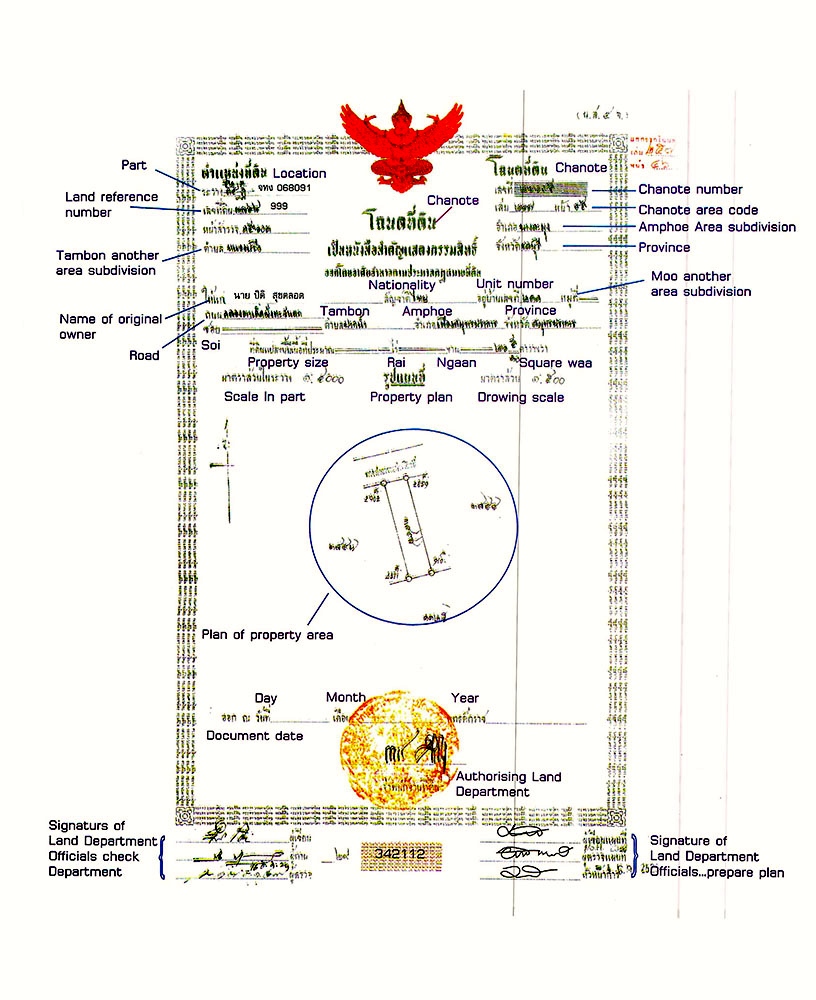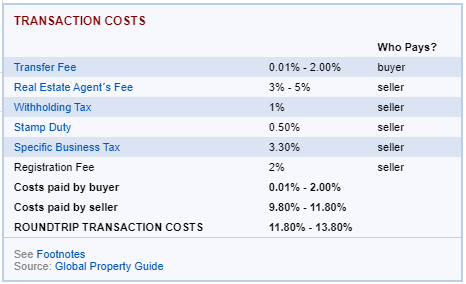Buying a house in Thailand as a foreigner
With the wide array of hotels and villas available throughout Thailand, spending winters in one of the ever-warm country’s vacation rentals is definitely something those who don’t live in Thailand look forward to every year.
After visiting the Kingdom so often, or even after living here and paying rent for so long, we’re pretty sure many foreigners have asked themselves, “Would it be worth buying a house in Thailand?”
If you’re in a position where you could afford landed property in Thailand, or if you’re just curious about whether it’d be cheaper to buy a villa or rent one every year, it’d be perfectly rational for you to explore the options.
So, if you’re thinking of buying a landed home in Thailand, here’s an overview of the technicalities behind foreigners owning land in Thailand, where to look for your dream home, and how the purchasing process works.
More guides to make living in Thailand a little easier:
- Insider guide to work visas
- How to retire in Thailand
- LINE accounts Thai expats should follow for food promos and hotel deals
Can foreigners own landed homes in Thailand?
First things first, let’s explore the technicalities of the laws behind foreign residents owning homes in Thailand.
According to Thailand Law Online, the Land Code Act prevents foreigners from legally owning land in Thailand.
However, it is possible for non-Thais to own the complex – like a house – that sits on the land, as written in Thai Embassy.
Alternatives to owning land in Thailand
Suppose you find a home that you’re interested in buying, but are put off by the fact that you can’t legally own the land.
Well, while foreign individuals can’t own the land that the house is built upon, there are long-term alternatives, like leasing the land for 30 years, or putting the land in a Thai company’s name.

1. Long-term lease of the land
Per Thai law, foreign residents are permitted to lease real estate for residential purposes, including land and homes for up to 30 years.
The lease must be registered with the Land Department by the landlord, a Thai national.
As the land is being leased for residential purposes, tenants may not sublet the property without written permission of the owner, according to Siam Legal.
2. Purchase land in the name of a Thai company
Domestic corporations, which Non-Thais can head, can own land in Thailand.
Thus, foreigners who are in a Thai Partnership or part of a Limited Company – where at least 51% of shareholders are Thai – can purchase land in the corporation’s name.
3. Invest in a Board of Investment (BOI) approved project
Non-Thais who invest at least ฿1 Million (~USD30,500) into Thailand are permitted to buy 16-32,000 sqm of nearby land to build residences for the company’s employees, according to Siam Legal.
The amount of land the foreign investor is permitted to purchase depends on the amount invested, the activities, and most importantly, the discretion of the Board of Investment.
4. Spousal ownership
Foreign residents who are married to Thai nationals are legally allowed to own land so long as the plot is registered under the Thai national’s name with the Land Department.
Furthermore, both parties must sign a Letter of Confirmation stating that funds used in purchasing the land came from the Thai national, as written in Thailand Law Online.
5. Structured Ownership
Though Non-Thai residents cannot own land in Thailand, they are allowed to own the structure built on it.
Thus, a foreigner can be registered as the owner of the house if their Thai spouse or company that owns the land applies for the Right of Superficies with the Land Department, as per Siam Legal.
They can legally own the structure on the property for up to 30 years, with a possibility for renewal.
After deciding which method works best for you, it’s time to start getting serious about where you’d be buying your home.
Step 1: Choosing your home in Thailand
Though a relatively small country, Thailand is home to multiple cultures and lifestyles. Thus, it’s important that you choose wisely when deciding where to buy your home.
If you’re looking to buy a house in Bangkok but aren’t sure where to settle, here’s a guide you can peruse to figure out which part of the city you may enjoy living in.
You can also use websites like DDProperty and HipFlat to help you narrow down your search as well as look at properties in other parts of Thailand.
Furthermore, the listings on these pages are often posted by real-estate agents. So, if you were looking for a property as well as a property agent, you may end up with both by using websites like these.

For those who don’t speak Thai or are unfamiliar with the home-buying process, a professional can help you navigate the ins-and-outs of Thai real estate as well as help you negotiate with the seller.
After deciding on your home, the next step is to make sure that you can legally obtain it.
Step 2: Perform a Title Search
After you’ve decided which property to buy in Thailand, the next step would be to perform a Title Search.
A Title Search is when the Land Department inspects the official property’s title deed to see whether there are any liens or mortgagers left on the property, as written in Siam Legal.
 Image credit: Century 21 Azen
Image credit: Century 21 Azen
Furthermore, the search can also provide you with information about residential zoning laws and environmental codes.
If the Title Search checks out, then the next step would be purchasing your home.
Step 3: Purchasing your home
Depending on your agreement with the seller, you may need to pay a ~10% deposit to secure the home while you go through the legal purchasing process.
The selling party will then draft up a Purchase and Sales Agreement, which experts highly recommend having a lawyer look over.
After an agreement between buyer and seller has been reached, then the documents are taken to the Land Department, who will officially transfer the ownership.
Here are some things to take note of the process:
Foreign Currency
When leasing residential property – like landed homes – it is not mandatory for the funds to come from abroad, unlike when buying a condo in Thailand.
Transaction costs
According to Global Property Online, the buyer typically has to pay the transfer fee, which is 2% of the property cost.
Exceptions are made for properties valued at ฿3 Million (~USD92,000) or less, where the transfer fee is 1%.
Here is a table with a general overview of the fees that go into buying property.

Image credit: Global Property Guide
Mortgage Loans
Thai retail banks typically do not offer home loans to foreigners. However, there are other options.
Overseas Mortgage
If a bank from your country operates in Thailand, they could be willing to offer a mortgage to you.
It is really dependent on the bank and their rules. The most popular banks for this service are United Overseas Bank (UOB), and Industrial and Commercial Bank of China (ICBC)
MBK Guarantee
MBK Guarantee offers financing options for foreigners who wish to buy property in Thailand and will typically accept the property as collateral.
Foreign quota
When buying a condo in Thailand, foreign residents can only own up to 49% of the total floor area, as written in Immigration Bangkok.
As for landed homes, as far as research shows, there aren’t any such laws surrounding this.
Buying a home in Thailand
If you’re spending enough time in Thailand that you’re considering buying a home here, it’s probably a good indicator to start looking at your options in getting your own place in the Land of Smiles.
Thailand seems like a great place to buy a home, especially if the property prices are low relative to real estate costs in your home country and your currency is valued higher than the Baht.
Of course, we can’t forget about other things that actually make Thailand a great place to build your nest. Like, the never-ending supply of scrumptious food to try, the convenience of having a shopping complex in every neighbourhood, and of course, the sabai-sabai lifestyle.
Whatever your reason is for considering buying a home in Thailand, we’re sure that you’ll find the Kingdom an easy place to settle into.
We wish you the best on your search for the perfect home, and the home-buying process.
Cover images adapted from: Samui Times, Villa Getaways
Enjoying The Smart Local Thailand? Follow us on Facebook and Instagram for more stories like this.

Drop us your email so you won't miss the latest news.





